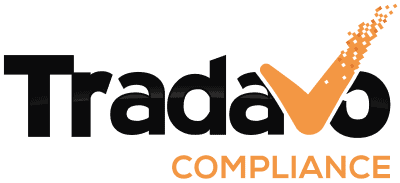Deforestation Regulation
Until now, the obligations of operators who distributed wood and wood products within the EU were regulated by the Timber Regulation (EUTR) or Regulation (EU) 995/2010. If, for example, you wanted to import a picture frame made of MDF into the EU, it was subject to this Regulation due to its customs tariff number.
One of our older blog posts already detailed the particulars that sellers needed to observe in this respect. In point of fact, the application of the Regulation was rarely monitored, if at all. This could change drastically with the entry into force of the new EU Deforestation Regulation (EUDR)!
Legal background
When does the new EUDR come into effect?
The new EUDR came into force as of June 29, 2023. On this date, an 18-month transitional period started that will end on December 30, 2024. Consequently, any and all products subject to the EUDR have to comply with it by 2025 at the latest. Furthermore, the EUTR will in part be replaced by the EUDR as of December 30, 2024.
For smaller businesses, the transitional period is 24 months, but only for products that have not been subject to the EU Timber Regulation until now. Both Regulations apply simultaneously, and the time of the logging decides which Regulation is applicable in each specific case.
Who is affected by the new EUDR?
The new EUDR affects both operators and traders. Their respective obligations depend on their position in the supply chain and the size of the business.
“Operators” means those players who first place the products on the European Single Market. They are subject to special due diligence obligations that we will describe in detail below.
Traders are responsible for keeping information about their own supply chain ready and providing it to the operators. Traders whose sales exceed a certain threshold are deemed to be operators pursuant to the EUDR.
Which products are affected by the new EUDR?
A product is subject to the new EU Regulation if the product contains one of the commodities specified in the Regulation, if the product was manufactured using one of said commodities, or if one of the products is used to feed livestock, for example.
Annex I of the EUDR contains a list of the relevant commodities and products that are subject to the Regulation. It includes particle boards, tool handles, crates, wooden frames for pictures, mirrors and the like, and other products made of wood, such as books, newspapers and image prints.
The most important changes for e-commerce sellers, and differences to the EUTR
Which other commodities are subject to the EUDR?
Besides wood, there are other, so-called relevant commodities that are subject to the EUDR, e.g., cattle, cocoa, oil palm, soy, coffee, and rubber. The EUDR aims to minimize the continuing deforestation, which is why it not only covers logging for the purpose of using the wood in products, but also the creation of agricultural land by way of logging.

Due diligence obligations
To be on the safe side in regard to the EUDR as an operator, you have to ensure that the relevant products that you procure from your supplier have been produced legally and without deforestation.
Meeting your due diligence obligations can be organized in three different steps:
- Information requirements: Pursuant to Article 9 of the Regulation, the operator has to collect and provide certain documents, data and information. They have to include a description, the trade name and the type of the relevant products. In addition, you need the geolocation of the plots of land where the respective commodity was produced.
- Risk assessment: Based on the information provided, the operator must then assess whether the compliance requirements are being met. Article 10 (2) of the Regulation contains a detailed list of criteria for this purpose. The risk assessment has to be updated annually and submitted to the competent authorities.
If the risk assessment shows that there is no risk of non-compliance of the products, or that the risk is negligible, the operator transmits their due diligence statement to the competent authority via a specified information system. This way, the operator assumes responsibility for the relevant products complying with the requirements of the Regulation.
- Risk mitigation: If the risk assessment finds that commodities or products do not comply with the requirements of the Regulation, the operator is responsible for reducing the risk to a negligible level. Corresponding measures and procedures have to be documented, reviewed on an annual basis, and, of course, transmitted to the competent authorities upon request.
Which documentation is required?
SMEs are not required to do such a comprehensive due diligence. However, they still have to have the necessary documents confirming that the goods they are trading on the European market have been produced without deforestation.
Consequently, they have to collect information about buyers and sellers and the reference number of the due diligence statement. The documents have to be kept for a period of five years.
Is a proper FSC or PEFC certification enough to fulfill the requirements?
FSC and PEFC certifications are voluntary certifications, whereas the EUDR is a legally binding Regulation. Even though FSC and other certification programs provide documents for wood and paper products that are required to fulfill the due diligence obligation, these certifications are not enough to comply with all the requirements of the EUDR.

How is compliance with the EUDR checked?
In Germany, the respective competent state authorities that are responsible for compliance with the relevant laws regarding products made of cattle, wood and soy are also responsible for checking that the EUDR is being complied with.
Compliance with the EUDR is checked by means of a three-tier risk level system. The obligations in regard to inspections and controls by the operators and the authorities of the member states differ depending on the risk category. For example, the competent authorities have to check approximately 9% of the economic operators who trade in products from high-risk countries.
What are the possible consequences of an infringement?
In the case of an infringement of the EU Deforestation Regulation, fines in an amount of up to 4% of the annual sales of your company may be imposed. The Regulation constitutes directly applicable EU law, i.e., the Regulation specifies minimum penalties. The amount of the fine depends on the extent of the environmental damage and the value of the goods concerned.
In addition, not only may the sale of the products concerned be prohibited, but it is also possible that the authorities mandate the withdrawal of the products from the market, and possibly a recall of the products that do not comply with the requirements of the EUDR.
Furthermore, an infringement of the EUDR can cause the perpetrator to be temporarily excluded from public invitations to tender or access to public funds.
We at Tradavo can help you
Are you uncertain if your products are subject to the new EU Deforestation Regulation? We are happy to examine your personal situation within the framework of a non-committal initial consultation with the compliance experts at Tradavo. This way, we can clarify if and where action needs to be taken, and find out how we can support you in the best possible way.
You need assistance?
It is best to book an appointment directly for a free initial consultation.
Who wrote this article?
As an author, Christina fills the blog section of our website with exciting and informative articles, so that our readers can always take care of product compliance in their company in the most well-informed way.




